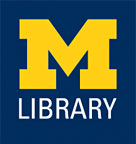Material Detail
Opening Up Education: The Collective Advancement of Education through Open Technology, Open Content, and Open Knowledge
In the books 30 essays, prominent leaders and thinkers in the open education movement reflect on current and past open education initiatives, offer critical analyses, share the strategic underpinnings of their own work, and delve into open educations implications in three areas: technology, content, and knowledge. Together, they address the central question of how open education can improve the quality of education. The authors comprised of faculty, researchers, administrators, academic technology experts, foundation program officers and scholars, and directors of major open education projects examine what challenges need to be addressed, what potential synergies can be realized, and what opportunities should be seized for a better future for education. Based on this collective agenda, the editors found that in order to open up education in ways that can dramatically advance learning and teaching, educators and administrators need to: Investigate the transformative potential and ecological transitions of open education Change educations culture and policy Make open education solutions sustainable Make practice and knowledge visible and shareable Build the teaching and learning commons through the collectivity culture
Quality
- Selected For Peer Review
-
User Rating
- Comments (1) Comments
- Learning Exercises
- Bookmark Collections (2) Bookmark Collections
- Course ePortfolios
- Accessibility Info







Kelvin Thompson (Faculty)
I've used this as a supplemental text in a graduate course on the topic of distance education. While my primary text addressed history and theories associated with distance education, selected chapters from "Opening Up Education" provided a counterpoint to traditional distance education by introducing various concepts from the open educational resources movement.
Technical Remarks:
Chapters are available as individual pdfs or in one large pdf. These files may be linked to, or they may be downloaded and "remixed" under a Creative Commons license. While I provide a link to Adobe Acrobat reader, I've never had any students report difficulty in accessing these materials.